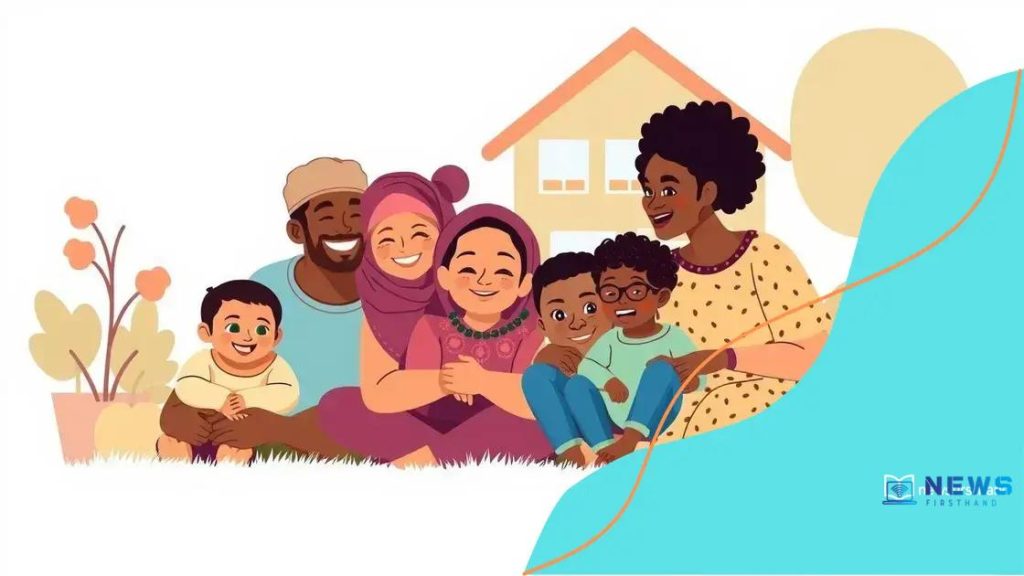Migrant housing grant expansion: what it means for you

Migrant housing support includes programs and grants that provide financial assistance and access to safe, affordable housing, focusing on improving living conditions for migrants and fostering community integration.
Migrant housing grant expansion is making waves in communities looking for solutions to housing shortages. Have you ever wondered how these grants can change lives and neighborhoods? Let’s dive into the details together.
Understanding migrant housing grants
Understanding migrant housing grants is crucial for communities and individuals seeking support for housing needs. These grants provide financial assistance to enhance living conditions for migrants, ensuring they have access to safe and stable accommodations.
What Are Migrant Housing Grants?
Migrant housing grants are specifically designed to assist individuals and families who migrate for work, study, or other reasons. They serve multiple purposes, primarily focusing on improving housing quality and accessibility.
Benefits of Migrant Housing Grants
- Financial support to reduce housing costs.
- Access to safe living environments.
- Stability for families during transitional periods.
- Community integration and support.
These grants aim to alleviate the pressures faced by migrants who often encounter difficulty finding affordable housing. They play a vital role in enabling these individuals to focus on their employment and community involvement without the added stress of housing insecurity.
Moreover, programs associated with migrant housing grants often provide additional resources such as counseling and legal assistance. Such support systems enhance the overall effectiveness of the housing grants, leading to improved outcomes for migrants.
Eligibility Criteria
To qualify for these grants, potential applicants usually need to meet specific criteria. Commonly required qualifications include proof of income, residency status, and the need for housing assistance. Each program may have varying guidelines, so it’s important to check the specific requirements.
As communities grow and diversify, understanding the nuances of migrant housing grants becomes increasingly essential. By fostering awareness and facilitating access, organizations can support the integration of migrants into society, ultimately benefiting everyone involved.
Key benefits of housing grant expansions
The key benefits of housing grant expansions extend beyond mere financial assistance. These benefits can significantly impact both individuals and communities as a whole, promoting stability and growth.
Access to Better Living Conditions
One major advantage of housing grant expansions is that they enable families to access improved living conditions. With this support, families often find homes that are safer, healthier, and more suitable for their needs.
Financial Relief
Housing grants can provide significant financial relief, allowing families to allocate their resources to other essential areas such as education and healthcare. This financial support also alleviates the stress of paying high rents, making it easier for families to thrive.
- Lower monthly housing costs.
- Ability to focus on other life goals.
- Reduction in the financial burden associated with housing.
By easing the financial strain, these grants foster a sense of security and stability, which is vital for any family looking to build a future.
Strengthening Communities
Additionally, housing grant expansions strengthen communities by encouraging diversity and inclusion. When migrants and families can secure housing, they are more likely to engage with their neighbors and contribute to local economies. This creates vibrant, diverse environments that benefit everyone.
Moreover, neighborhood revitalization often follows the expansion of housing grants. When housing quality improves, property values in the area can also rise, leading to additional investments in public services and infrastructure.
Ultimately, the benefits of housing grant expansions reach far and wide, helping not just individual families but also enhancing the overall fabric of the community.
Eligibility criteria for applicants

The eligibility criteria for housing grants are important to understand if you are considering applying. Knowing these requirements can help you prepare your application effectively.
Basic Requirements
Generally, most programs require applicants to meet certain basic criteria. For example, you must often demonstrate your need for housing assistance and show proof of income.
Key Eligibility Factors
- Proof of residency or migrant status.
- Income limits: applicants must usually fall within a specific income range.
- Family size: some programs may consider the number of family members.
- Age requirements, as certain grants may be targeted towards specific age groups.
These factors help organizations determine who is in the greatest need of support. For instance, individuals with lower incomes typically qualify for a larger share of resources, ensuring that funds are directed to those who need them most.
Additionally, some programs may require that you provide documentation such as tax returns, pay stubs, or other records that demonstrate your financial situation. Understanding these requirements before starting your application can save time and increase your chances of success.
Application Process
The application process itself can vary by program. Some may offer online applications, while others might require paper forms. Be sure to check the specific instructions for the grant you are applying for.
Also, keep deadlines in mind. Applications usually have specific time frames, and missing these can mean missing out on vital assistance. If you’re unsure about any aspect of the eligibility criteria or application process, reaching out to the program administrators can provide clarity and guidance.
Applications: what you need to know
When it comes to making a successful application for housing grants, knowing what to expect can make all the difference. The application process might seem daunting, but understanding its components can lead to a smoother journey.
Understanding the Application Form
Each grant program has its own application form, and it’s important to read it carefully. Make sure you fill out all necessary fields and provide accurate information. Missing details can lead to delays or even rejection.
Required Documentation
- Proof of income, such as pay stubs or tax returns.
- Identification documents for all household members.
- Residency verification, which could include utility bills or lease agreements.
- Status documentation, indicating if the applicant is a migrant or meeting other specific criteria.
Gathering these documents before starting your application can save time and frustration. It is better to have everything ready to avoid back-and-forth requests for missing information.
Tips for a Successful Application
One key aspect of a successful application is being thorough. Take your time to ensure all details are accurate and complete. Also, it can be beneficial to include a personal statement. This statement can explain your situation and why you need assistance, providing a personal touch that might resonate with reviewers.
After submitting your application, be patient but proactive. Follow up to confirm that it has been received and inquire about the timeline for decisions. This can help you stay informed and prepared for future steps.
Finally, if your application is denied, don’t be discouraged. Many programs allow for appeals, and understanding the reasons for denial can help you strengthen a future application.
Future of migrant housing support
The future of migrant housing support looks promising as communities and organizations prioritize inclusivity and stability for all residents. As the demand for affordable housing continues to rise, innovative solutions are being developed to meet these challenges.
Emerging Trends
One key trend in the future of housing support is the increased integration of technology. More organizations are using digital platforms to connect migrants with available housing resources efficiently. These tools can streamline the application process and improve access to essential information.
Community-Based Approaches
- Collaborative initiatives between local governments and nonprofit organizations.
- Increased funding for community-led housing projects.
- Support programs that educate migrants about their rights and available resources.
- Strengthening partnerships to create holistic support systems.
Such community-based approaches foster relationships between migrants and locals, encouraging a sense of belonging and teamwork in addressing housing issues. This collaboration can lead to more sustainable and effective solutions.
Policy Changes and Advocacy
In addition, advocacy around migrant housing support is gaining momentum. Policymakers are increasingly recognizing the need for tailored programs that address the unique challenges faced by migrant families. This shift could lead to more inclusive policies that provide financial assistance, protect housing rights, and enhance access to services for migrants.
Organizations are also championing reforms that prioritize affordable housing strategies and protect against discrimination in housing markets. This advocacy is crucial for the long-term success of supportive housing initiatives and the overall well-being of migrant communities.
In summary, the future of migrant housing support is bright and full of potential. As communities embrace innovative solutions and advocate for inclusive policies, more families will have access to safe and affordable housing. By understanding eligibility criteria and navigating the application process, migrants can take advantage of the support available to them. Together, we can create a welcoming environment for all, ensuring that everyone has a place to call home.
\n\n
\n
FAQ – Frequently Asked Questions about Migrant Housing Support
What is migrant housing support?
Migrant housing support refers to various programs and grants designed to assist migrants in securing affordable and safe housing.
Who is eligible for housing grants?
Eligibility typically includes proof of income, residency or migrant status, and meeting specific criteria set by the grant program.
How can I apply for a housing grant?
You can apply by completing the specific application form for the grant, providing required documentation, and following the outlined steps for submission.
What are the benefits of housing grant expansions?
Housing grant expansions can provide financial relief, improve living conditions, and strengthen community ties by supporting diversity and inclusion.





